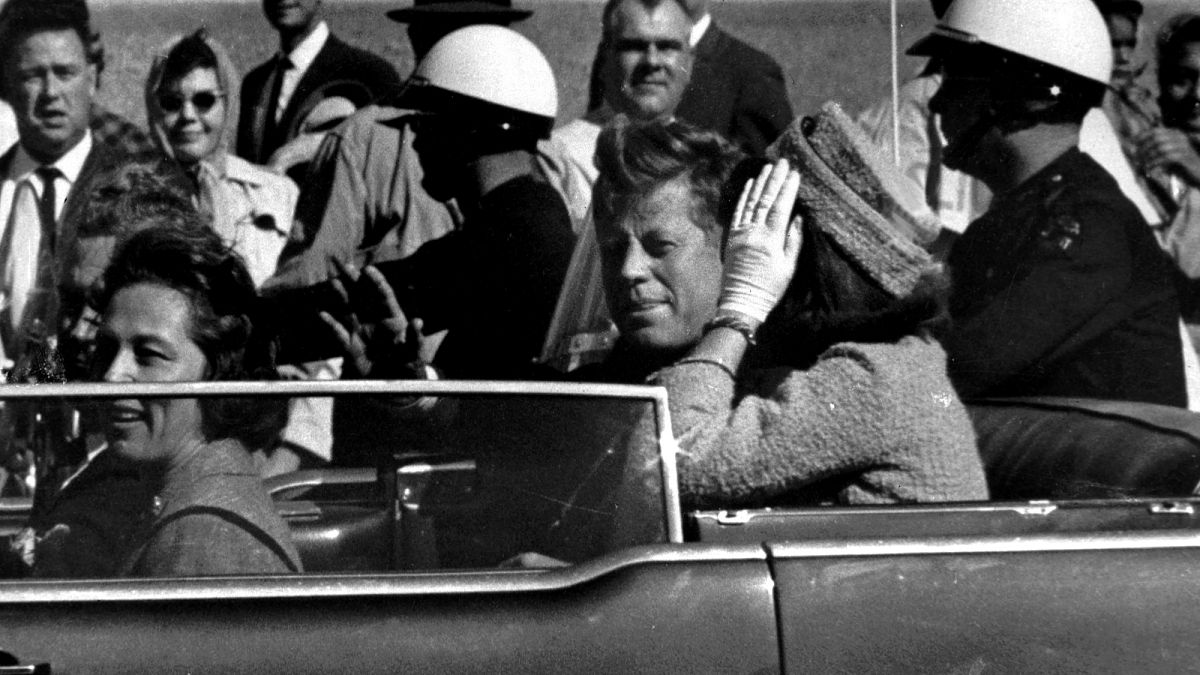EU seeks transatlantic trade truce as US tariffs strain car industry

US President Donald Trump has secured the first truce in his global trade war, reaching a ‘historic’ compromise with the United Kingdom (UK) last week. Just on Monday, he also agreed to slash tariffs with China – but the European Union is still negotiating to reach a compromise across the Atlantic.
Since his inauguration in January, Trump – a staunch protectionist – launched sectoral tariffs of 25 percent on steel, aluminium, and automobiles, as well as universal tariffs of 10 percent on most other imports to the US.
In April, he paused special levies on imports from most trading partners including the European Union for 90 days, prompting the bloc to suspend its planned countertariffs to allow for further talks.
The European Commission on Thursday however unveiled plans to impose additional tariffs on US imports worth up to 95 billion Euro if negotiations with Washington do not lead to a solution to the trade conflict.
A list of targeted products published on Thursday covered industrial and agricultural goods, including cars and car parts, aeroplane parts, machines, and fuels, as well as livestock, meats, fresh produce, chocolates, wine and other alcoholic beverages.
“The EU remains fully committed to finding negotiated outcomes with the US,” said European Commission President Ursula von der Leyen.
Carmakers have been among the hardest hit by the US president’s multi-pronged assault on free trade, with major brands – especially in Europe’s largest economy, Germany – grappling with a loss of sales and profits.
According to the European Automobile Manufacturers’ Association’s (ACEA) annual report, the EU exported some 750,000 vehicles worth 39 billion Euro to the US in 2024.
European carmakers in distress
At the end of April, Germany’s Mercedes-Benz and US-European group Stellantis, whose 14 brands include Jeep, Peugeot, Fiat, Maserati and Opel, joined other automakers in suspending their annual financial guidance because of uncertainty over US tariffs.
Often referred to as ‘earnings guidance’, carmakers regularly release information as an indication or estimate of its future earnings. Uncertainty over the economic impact of the US tariffs however led them to scrap their financial forecasts for this year, underlining the chaos caused by Trump’s fast-changing trade tactics.
Mercedes cited “volatility with regard to tariff policies” that meant business development could not be reliably forecast.
Mercedes-Benz and Volkswagen, Europe’s biggest automakers, reported big drops in their net profits over the January-March period — before the US tariffs kicked in. Mercedes’ net profit plunged almost 43 percent in the first three months of the year to 1.73 billion Euro.
Stellantis reported a 14-percent drop in its first-quarter sales to 35.8 billion Euro.
In Spain, the case of Seat, one of the largest companies in their automotive industry, stands out – however not because of US tariffs, but because of EU tariffs on Chinese electric vehicles (EV) that are still in place.
To combat heavy competition from the Chinese EV market, the EU hit China with tariffs of up to 45.3 percent.
In February, Seat said that some 1,500 jobs in the company and another 10,000 indirect jobs were at risk if the current EU tariffs on the Cupra Tavascan, the EV that it manufactures in China, were not lowered.
The decline in vehicle demand across Europe, above all in Germany, also impacts car parts manufacturers and suppliers across the continent.
Bulgaria does not make cars but plenty of Bulgarian companies produce car components. The spring macroeconomic review of DSK Bank published in late April warned of negative effects related to trading partners in Germany and Italy which are directly hit by the tariffs. This could result in a decline in parts orders.
The head of the Executive Board of the Association of Automobile Importers in Bulgaria, Lyubomir Dorosiev, however told Bulgarian news agency BTA in early April that the tariffs on EU-made automobiles are good news for European consumers. In his opinion, if European manufacturers are unable to export cheaply to the US, they will gradually cut new car prices in Europe, including in Bulgaria.
In North Macedonia, an EU candidate country, car parts suppliers are also raising concerns about reduced orders, with some experiencing drops of up to 30 percent. According to them, the negative effects in Europe are reaching local suppliers of major carmakers with a slight delay, and they fear that repercussions on the country’s economy will become even more severe if economic challenges in Europe’s largest economy, Germany, continue.
Emission troubles
The EU also continues to face a dilemma between bolstering key sectors – including automobile manufacturing – in the face of fierce US and Chinese competition on the one hand, and reaching longstanding climate goals on the other hand.
EU lawmakers last week gave the green light to a delay for European carmakers to meet new emission targets, as the bloc seeks to balance climate goals with supporting the struggling industry.
Part of that effort includes loosening rules to give companies breathing room, including the reprieve approved in Strasbourg by a 458 to 101 majority of EU lawmakers.
Starting this year, the EU is cutting the average carbon emissions that new vehicles sold in the 27-country bloc are permitted to produce, with steep fines if carmakers fail to comply.
Under a scheme put forward in March by Von der Leyen, companies will be able to comply with the new targets by averaging their emissions over three years from 2025 to 2027, rather than each individual year.
This means they will not be fined if they fail to meet the 2025 target by December 31 this year.
UK sets the tone with first trade compromise
While the EU and other countries reeling from the US tariffs still seek to strike a trade compromise with the US, the UK has become the first country to do so – easing duties on cars and metals but drawing fire from American automakers.
The US and UK last week reached a “historic” compromise hailed as a mutually beneficial deal to slash tariffs on UK carmakers and reduce tariffs on steel and aluminium to zero.
Under the agreement, announced by Trump and British Prime Minister Keir Starmer on Friday, tariffs on 100,000 UK-made vehicles imported to the US will be reduced from 25 percent to 10 percent.
Meanwhile, the deal is drawing criticism from the US auto industry, which says it could disadvantage domestic manufacturers.
The American Automotive Policy Council (AAPC), which represents the Big Three US automakers — Ford, General Motors and Stellantis — also warned the move would give UK producers an unfair edge over US-based firms.
Carmakers in the US rely on parts and production from Mexico and Canada, much of which currently remains exempt from tariffs under the US-Mexico-Canada Agreement (USMCA).
However, these exemptions are expected to shrink over time. The AAPC said that under the new deal, it could soon be cheaper to import a UK vehicle than one from Mexico or Canada that contains a significant portion of US parts, leading to a disadvantage for US manufacturers, suppliers and workers.
This article is published twice a week. The content is based on news by agencies participating in the enr.















































